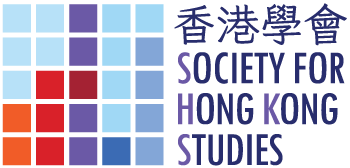Annual Conference 2022
The Annual Conference of the Society for Hong Kong Studies provides the opportunity for professionals involved in the study of Hong Kong to share knowledge and new directions in research and practice.
HONG KONG STUDIES AS PRAXIS
The SHKS Annual Conference 2022 was held on 24-25 June virtually via Zoom. This year, we served more than 16 panels and 80 panelists, covering a diverse range of subjects in Hong Kong Studies.
Hong Kong Studies as Praxis
This year’s theme is “Hong Kong Studies as Praxis” which we hope will stimulate collective and multi-disciplinary reflections on Hong Kong Studies as a process in the making during a time of uncertainty. Through this year’s conference, it is the Society’s wish to encorage conversations about the future development and direction of the field, which has only become relatively more fashionable in academia in the past decade.
Keynote Speech: The Coloniality of One Country Two Systems
We are also delighted to have Prof. Ngo Tak Wing from University of Macau to be our keynote speaker this year. His keynote speech is titled “The Coloniality of One Country Two Systems” and the abstract is as follows:
Colonial governance creates structures of power that continue to shape social relations and institutions in the present. Three legacies of British rule in Hong Kong are particularly relevant: first, a landlord economy that predicated upon land rent and revenue farming as the dominant mode of capital accumulation and extraction; second, a comprador politics that emphasized political brokerage instead of popular participation; and third, a social ethos (deriving from the liminality of a refugee populace in a borrowed time, borrowed place) that embraced the Lockean idea of social contract rather than the doctrine of national identity and patriotism. The original intention of the One Country Two Systems setup was to preserve/replicate such power structures but replace the power interlocuters. Yet these structures of power, once delicately mediated by the colonial state, come into conflict after the handover. The coloniality creates a historical impasse – the truly “deep-rooted contradiction” – that undermines the One Country Two Systems.
